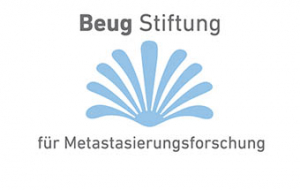Sarah-Maria Fendt, VIB-Katholieke Universiteit Leuven
Project 2021
Exploiting metabolic intra-tumor heterogeneity of primary breast tumors to predict metastasis risk
Metastasis formation is the leading cause of death in breast cancer patients. Nearly 30% of patients will develop metastases. Unfortunately, we currently cannot predict which patient will develop metastases. This greatly reduces the application of personalized follow up screening and preventative measures.
We discovered that heterogeneous protein expression of a metabolic enzyme in primary tumors of breast cancer patients indicates metastasis. Thus, we hypothesize that comprehensively identifying intra-tumor metabolic heterogeneity in primary breast tumors will enable us to predict metastasis risk. Current technologies such as single cell RNA sequencing allow the quantification of heterogeneity at the transcript level. However, the limitation of identifying metabolic heterogeneity at this level is that there is no linear relationship between mRNA, protein and metabolic functionality. Thus, we propose to study metabolic heterogeneity of primary breast tumors with the beyond state-of-the-art technology of spatial metabolomics. In particular, we will define metabolic heterogeneity of highly and low/non-metastatic primary PDX breast tumors with spatial metabolomics and single cell RNA sequencing. We expect that defining the metabolome is advantageous over the transcriptome when predicting metastasis risk.
Thus, this project will pave the ground for predicting metastasis risk of breast cancer patients which will ultimately lead to improved care.
Report 2023
Each year more than 685000 women die of breast cancer and metastasis formation is responsible for 90% of the mortality. Therefore, predicting metastasis risk and understanding as well as intercepting metastasis formation is of utmost importance to improve patient survival. We have discovered that metabolic rewiring in primary breast tumors correlates with the risk of metastasis formation and that targeting metabolic rewiring in disseminated cancer cells decreases metastasis formation.
However, until now our resolution to define metabolic rewiring was limited to a bulk analysis of homogenized tissues, which majorly limited our ability to understand metabolic communication and competition in the tumor microenvironment and in future organs of metastasis. The funding from the Beug foundation was an essential contributor to our ability to overcome this limitation because it enabled us to successfully use spatial metabolomics with close to single cell resolution. Consequently, this allowed us to map metabolism is space and to better define and intercept metabolic heterogeneity in primary tumors and tumor-stromal cell communication in future organs of metastasis. Specifically, we identified nutrient priming in future organs of metastasis as a major contributor to metastasis growth that can be intercepted by targeting nutrient processing enzymes. Moreover, we were able to secure follow up funding within a large consortium effort to study the perivascular niche and its importance as a driver of metabolic heterogeneity and metastasis formation risk in tumors.
In conclusion, with the support of Beug foundation we pathed the ground for understanding and intercepting metabolic heterogeneity in the tumor microenvironment. We expect that this will allow us in the future to protect organs from metastasis formation to increase patient survival.

